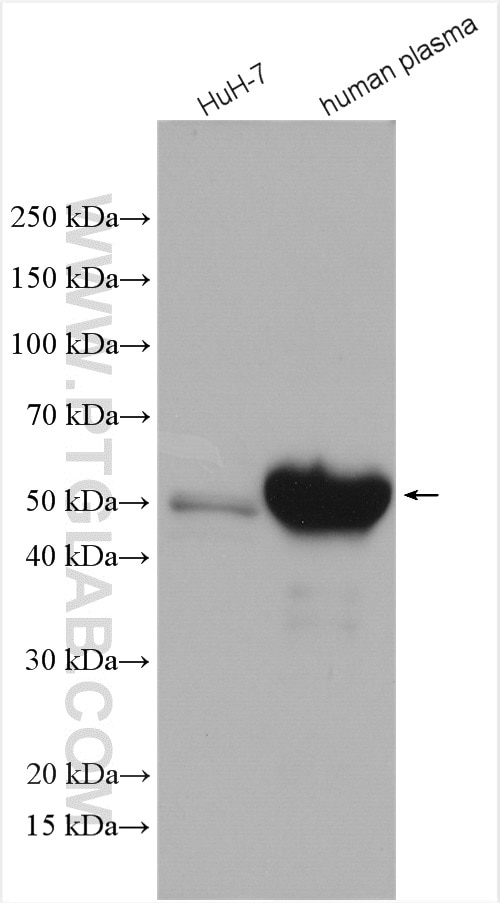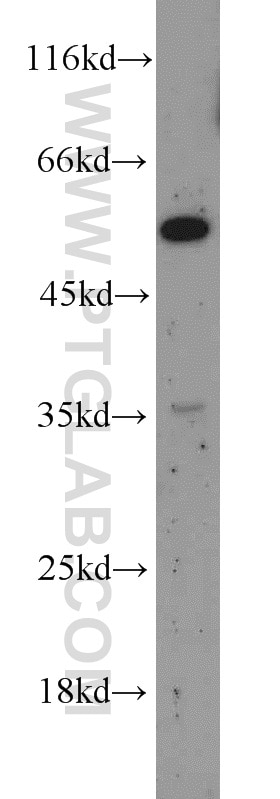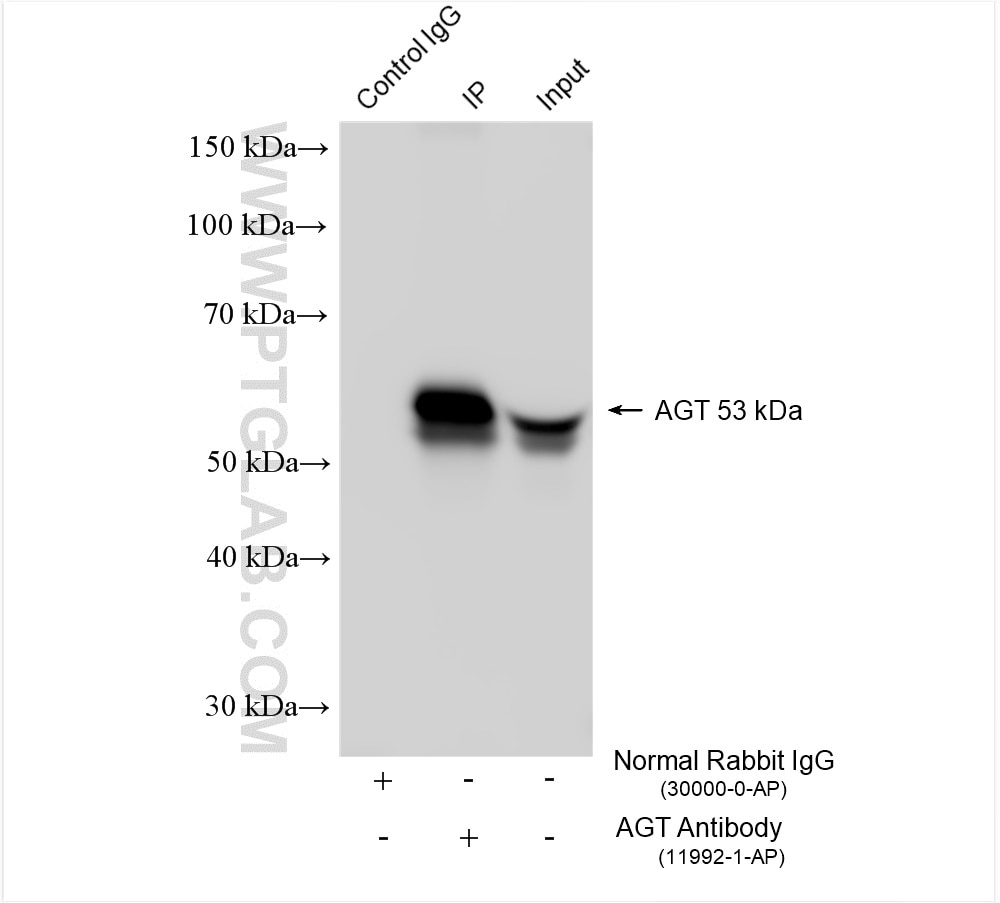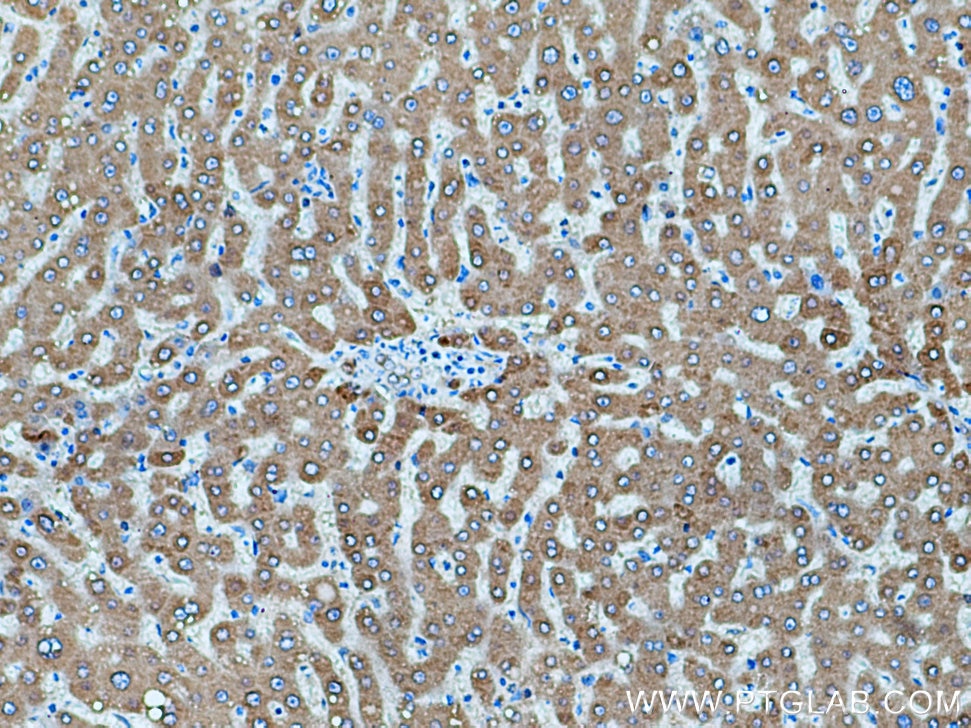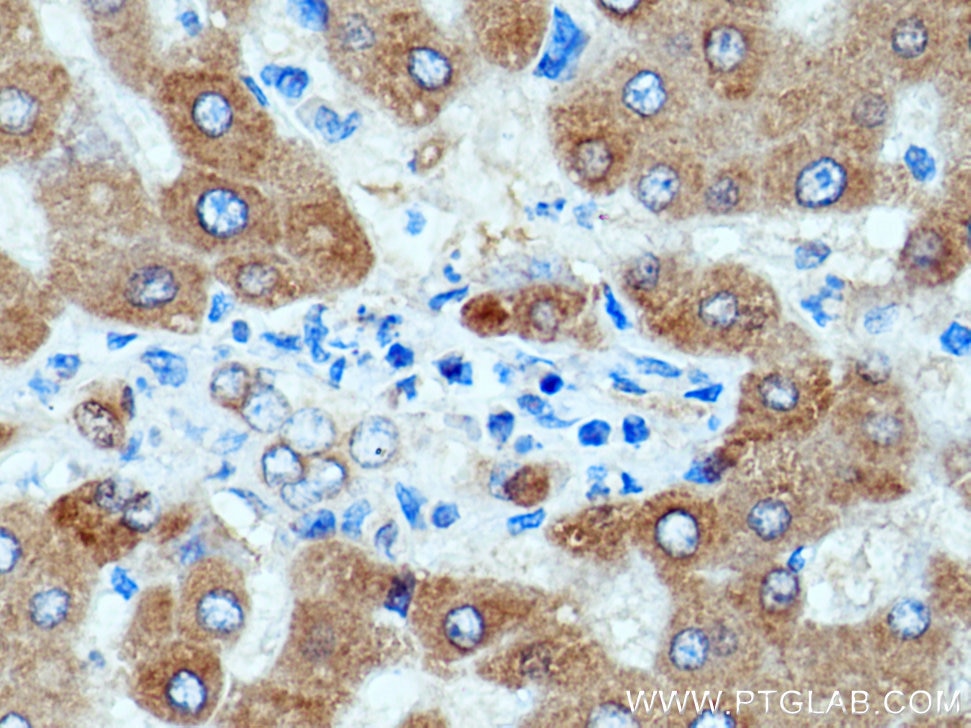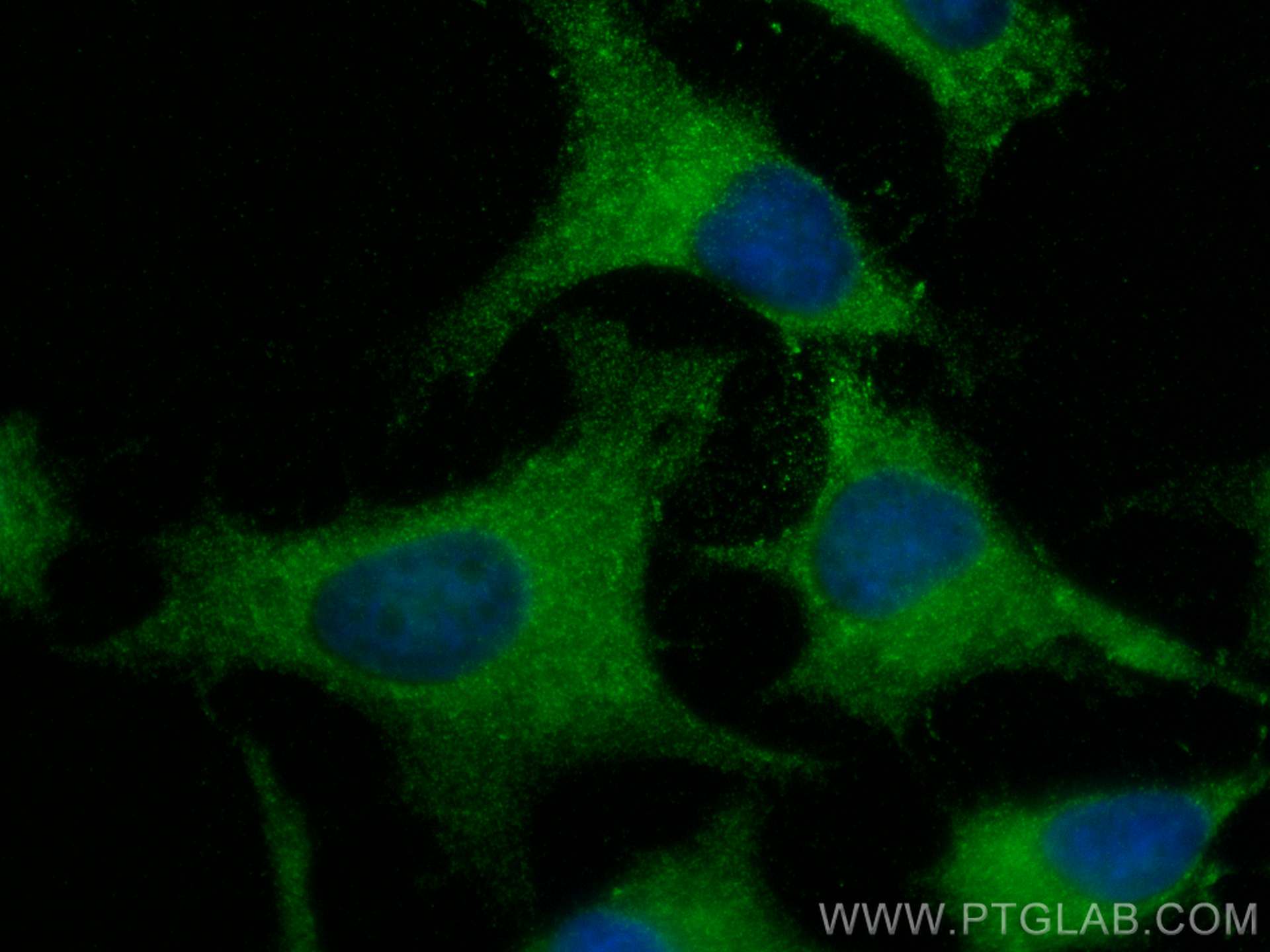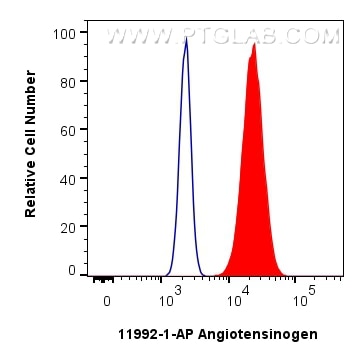Tested Applications
| Positive WB detected in | HuH-7 cells, HepG2 cells, human plasma |
| Positive IP detected in | human plasma |
| Positive IHC detected in | human liver tissue Note: suggested antigen retrieval with TE buffer pH 9.0; (*) Alternatively, antigen retrieval may be performed with citrate buffer pH 6.0 |
| Positive IF/ICC detected in | HeLa cells |
| Positive FC (Intra) detected in | HepG2 cells |
Recommended dilution
| Application | Dilution |
|---|---|
| Western Blot (WB) | WB : 1:1000-1:4000 |
| Immunoprecipitation (IP) | IP : 0.5-4.0 ug for 1.0-3.0 mg of total protein lysate |
| Immunohistochemistry (IHC) | IHC : 1:50-1:500 |
| Immunofluorescence (IF)/ICC | IF/ICC : 1:50-1:500 |
| Flow Cytometry (FC) (INTRA) | FC (INTRA) : 0.25 ug per 10^6 cells in a 100 µl suspension |
| It is recommended that this reagent should be titrated in each testing system to obtain optimal results. | |
| Sample-dependent, Check data in validation data gallery. | |
Published Applications
| KD/KO | See 3 publications below |
| WB | See 22 publications below |
| IHC | See 7 publications below |
| IF | See 6 publications below |
| CoIP | See 1 publications below |
Product Information
11992-1-AP targets Angiotensinogen/AGT in WB, IHC, IF/ICC, FC (Intra), IP, CoIP, ELISA applications and shows reactivity with human samples.
| Tested Reactivity | human |
| Cited Reactivity | human, mouse, rat |
| Host / Isotype | Rabbit / IgG |
| Class | Polyclonal |
| Type | Antibody |
| Immunogen |
CatNo: Ag2632 Product name: Recombinant human AGT protein Source: e coli.-derived, PGEX-4T Tag: GST Domain: 136-485 aa of BC011519 Sequence: PTAVFGTLASLYLGALDHTADRLQAILGVPWKDKNCTSRLDAHKVLSALQAVQGLLVAQGRADSQAQLLLSTVVGVFTAPGLHLKQPFVQGLALYTPVVLPRSLDFTELDVAAEKIDRFMQAVTGWKTGCSLTGASVDSTLAFNTYVHFQGKMKGFSLLAEPQEFWVDNSTSVSVPMLSGMGTFQHWSDIQDNFSVTQVSFTESACLLLIQPHYASDLDKVEGLTFQQNSLNWMKKLSPRTIHLTMPQLVLQGSYDLQDLLAQAELPAILHTELNLQKLSNDRIRVGEVLNSIFFELEADEREPTESTQQLNKPEVLEVTLNRPFLFAVYDQSATALHFLGRVANPLSTA Predict reactive species |
| Full Name | angiotensinogen (serpin peptidase inhibitor, clade A, member 8) |
| Calculated Molecular Weight | 485 aa, 53 kDa |
| Observed Molecular Weight | 53 kDa |
| GenBank Accession Number | BC011519 |
| Gene Symbol | AGT |
| Gene ID (NCBI) | 183 |
| RRID | AB_2225452 |
| Conjugate | Unconjugated |
| Form | Liquid |
| Purification Method | Antigen affinity purification |
| UNIPROT ID | P01019 |
| Storage Buffer | PBS with 0.02% sodium azide and 50% glycerol, pH 7.3. |
| Storage Conditions | Store at -20°C. Stable for one year after shipment. Aliquoting is unnecessary for -20oC storage. 20ul sizes contain 0.1% BSA. |
Background Information
Angiotensinogen is a precursor of angiotensin II (Ang II), is expressed and synthesized largely in the liver and is cleaved by the enzyme renin in response to lowered blood pressure. It has a key role in mediating vascular constriction and regulating salt and fluid homeostasis. The resulting product, angiotensin I, is then cleaved by angiotensin converting enzyme (ACE) to generate the physiologically active enzyme angiotensin II. Mutations in this gene are associated with susceptibility to essential hypertension, and can cause renal tubular dysgenesis, a severe disorder of renal tubular development. Defects in this gene also have been associated with non-familial structural atrial fibrillation, and inflammatory bowel disease.
Protocols
| Product Specific Protocols | |
|---|---|
| FC protocol for Angiotensinogen/AGT antibody 11992-1-AP | Download protocol |
| IF protocol for Angiotensinogen/AGT antibody 11992-1-AP | Download protocol |
| IHC protocol for Angiotensinogen/AGT antibody 11992-1-AP | Download protocol |
| IP protocol for Angiotensinogen/AGT antibody 11992-1-AP | Download protocol |
| WB protocol for Angiotensinogen/AGT antibody 11992-1-AP | Download protocol |
| Standard Protocols | |
|---|---|
| Click here to view our Standard Protocols |
Publications
| Species | Application | Title |
|---|---|---|
Matrix Biol Proteome-wide and matrisome-specific atlas of the human ovary computes fertility biomarker candidates and open the way for precision oncofertility. | ||
Hypertension Attenuation of brain damage and cognitive impairment by direct renin inhibition in mice with chronic cerebral hypoperfusion. | ||
Biochem Pharmacol Downregulation of spinal angiotensin converting enzyme 2 is involved in neuropathic pain associated with type 2 diabetes mellitus in mice. | ||
FASEB J Sperm immotility is associated with epididymis metabolism disorder in mice under obstructive azoospermia | ||
Cells Effect of Hydrocortisone on Angiotensinogen (AGT) Mutation-Causing Autosomal Recessive Renal Tubular Dysgenesis. | ||
Phytomedicine Epiberberine ameliorated diabetic nephropathy by inactivating the angiotensinogen (Agt) to repress TGFβ/Smad2 pathway. |

